RFI: EU still divided
The EU has once again shown that it cannot adopt a united position, says Radio France International.
Tuesday, 29.01.2008.
15:32

The EU has once again shown that it cannot adopt a united position, says Radio France International. “The 27 remain divided. Holland did not want to back down from its demands that former Bosnian Serb General Ratko Mladic be arrested before signing the Stabilization and Association Agreement (SAA),” said the radio station following the ministers’ meeting in Brussels, adding that it had been a condition two months ago, although “many countries had been prepared to ignore it.” RFI: EU still divided RFI said that “pro-European [Democratic Party] candidate Boris Tadic was counting on the EU in order to defeat nationalist [Serb Radical Party candidate] Tomislav Nikolic and demonstrate to his voters his efficiency in bringing Serbia closer to the EU.” However, instead of the SAA, the Europeans offered him only a limited agreement on political dialogue, free trade, visa relaxations in the Schengen Zone and cooperation in the field of education, said the radio station. Commenting on the EU’s offer to Serbia, daily Telegram says that “Tadic’s possible defeat in the second round of elections could accelerate a Kosovo declaration of independence.” Daily Liberation says that the vast majority of EU states and the European Commission were ready to sign the SAA, believing that “such a gesture would strengthen the position of pro-European Tadic and help him win the second round.” “After a Kosovo declaration of independence within a few days, and the promised recognition by 'the 27', relations with Belgrade will be anything but peaceful,” concluded Liberation. Guardian: EU encourages pro-west candidate The EU has offered Serbia a trade and visa deal in an attempt to help “secure a victory for the pro-western democrat in this weekend's Serbian presidential election.” “A meeting of European Union foreign ministers in Brussels delivered the unusually blatant intervention in Balkan politics amid widespread fears that an extreme nationalist will win the contest on Sunday, only weeks before the EU is expected to recognize the independence of Serbia's breakaway province of Kosovo,” wrote the paper. The paper adds that there is an atmosphere of panic in the air at the prospect of Tomislav Nikolic of “the ultra-nationalist Radical party” beating "the pro-western moderate Tadic" and “returning Serbia to the nationalist isolation of the Milosevic years in the 1990s.” There is also a fear that Serbia could then be turned “into Russia's orbit… putting it on collision course with the west over Kosovo.” The Guardian says that European Justice Commissioner Franco Frattini is coming to Belgrade on Wednesday to announce the introduction of visa relaxations “in a move aimed at influencing Serbian voters before the poll.” New York Times: Political lift for Tadic In a similar tone, the New York Times says that EU foreign ministers “were looking for ways to give a political lift to the pro-Western liberal incumbent in Serbia, President Boris Tadic.” With this message, the EU wishes to send a clear “signal to Serbia on Monday that its path to membership would be opened if it rejected a nationalist pro-Russian candidate in the presidential runoff next Sunday and apprehended war criminal suspects who remained at large from the Balkan conflicts of the 1990s." The paper says that Slovenian Foreign Minister Dimitrij Rupel has hinted that Serbia could become an EU member in a few years time provided it chooses a moderate president. The New York Times also quotes one analyst who believes that the EU’s attempt to link the election result in Serbia with future membership could have a counter-effect and encourage the nationalists. “Nikolic has sought to exploit wounded national pride by playing on the disenchantment over American and European Union support for Kosovo, the breakaway province poised to declare independence next month,” says the paper.
RFI: EU still divided
RFI said that “pro-European [Democratic Party] candidate Boris Tadić was counting on the EU in order to defeat nationalist [Serb Radical Party candidate] Tomislav Nikolić and demonstrate to his voters his efficiency in bringing Serbia closer to the EU.”However, instead of the SAA, the Europeans offered him only a limited agreement on political dialogue, free trade, visa relaxations in the Schengen Zone and cooperation in the field of education, said the radio station.
Commenting on the EU’s offer to Serbia, daily Telegram says that “Tadić’s possible defeat in the second round of elections could accelerate a Kosovo declaration of independence.”
Daily Liberation says that the vast majority of EU states and the European Commission were ready to sign the SAA, believing that “such a gesture would strengthen the position of pro-European Tadić and help him win the second round.”
“After a Kosovo declaration of independence within a few days, and the promised recognition by 'the 27', relations with Belgrade will be anything but peaceful,” concluded Liberation.
Guardian: EU encourages pro-west candidate
The EU has offered Serbia a trade and visa deal in an attempt to help “secure a victory for the pro-western democrat in this weekend's Serbian presidential election.”“A meeting of European Union foreign ministers in Brussels delivered the unusually blatant intervention in Balkan politics amid widespread fears that an extreme nationalist will win the contest on Sunday, only weeks before the EU is expected to recognize the independence of Serbia's breakaway province of Kosovo,” wrote the paper.
The paper adds that there is an atmosphere of panic in the air at the prospect of Tomislav Nikolić of “the ultra-nationalist Radical party” beating "the pro-western moderate Tadić" and “returning Serbia to the nationalist isolation of the Milošević years in the 1990s.”
There is also a fear that Serbia could then be turned “into Russia's orbit… putting it on collision course with the west over Kosovo.”
The Guardian says that European Justice Commissioner Franco Frattini is coming to Belgrade on Wednesday to announce the introduction of visa relaxations “in a move aimed at influencing Serbian voters before the poll.”
New York Times: Political lift for Tadić
In a similar tone, the New York Times says that EU foreign ministers “were looking for ways to give a political lift to the pro-Western liberal incumbent in Serbia, President Boris Tadić.”With this message, the EU wishes to send a clear “signal to Serbia on Monday that its path to membership would be opened if it rejected a nationalist pro-Russian candidate in the presidential runoff next Sunday and apprehended war criminal suspects who remained at large from the Balkan conflicts of the 1990s."
The paper says that Slovenian Foreign Minister Dimitrij Rupel has hinted that Serbia could become an EU member in a few years time provided it chooses a moderate president.
The New York Times also quotes one analyst who believes that the EU’s attempt to link the election result in Serbia with future membership could have a counter-effect and encourage the nationalists.
“Nikolić has sought to exploit wounded national pride by playing on the disenchantment over American and European Union support for Kosovo, the breakaway province poised to declare independence next month,” says the paper.












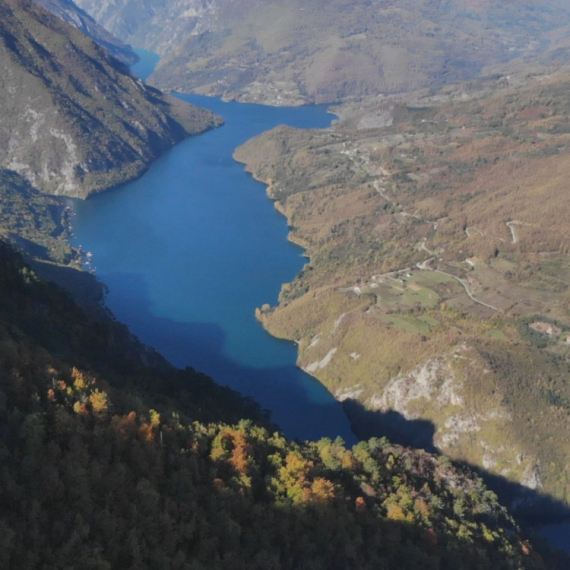



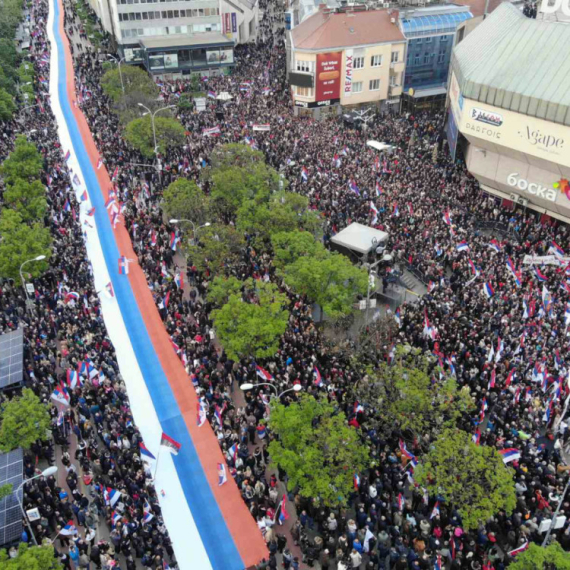
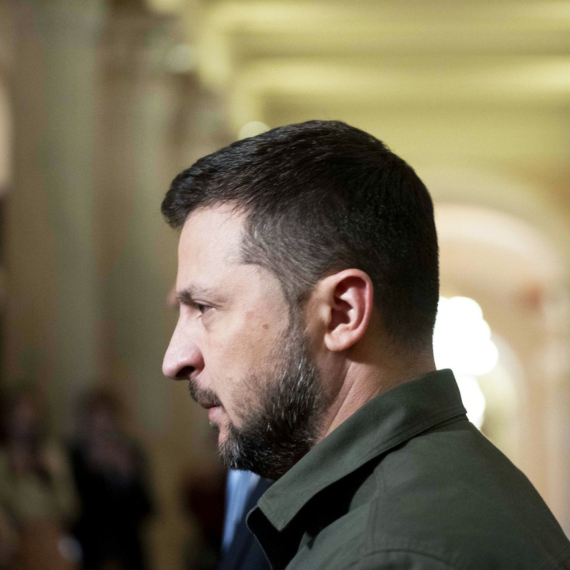
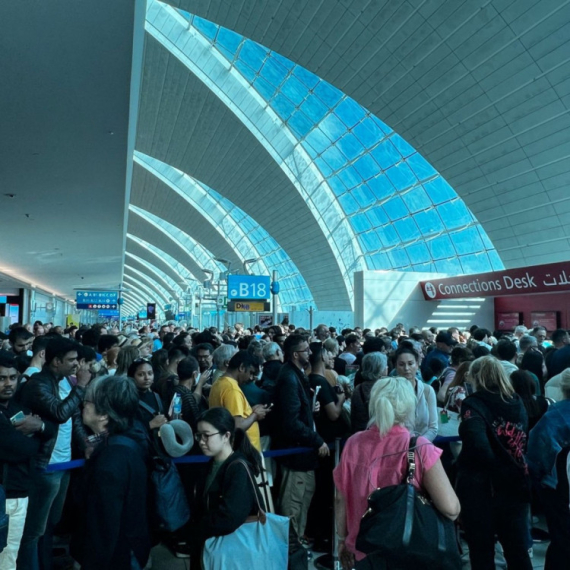




























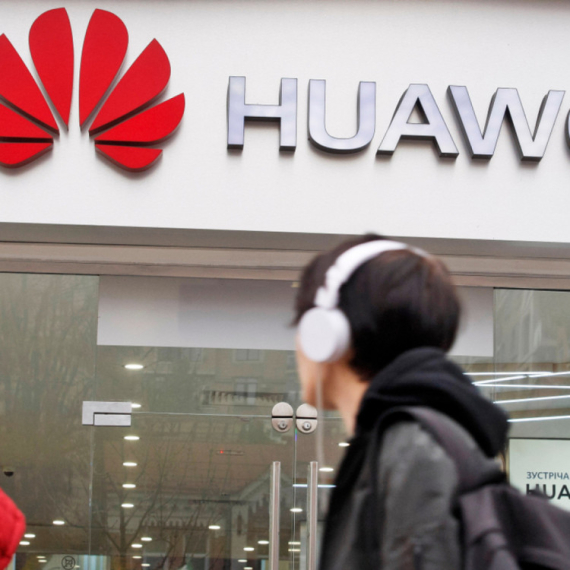











Komentari 2
Pogledaj komentare